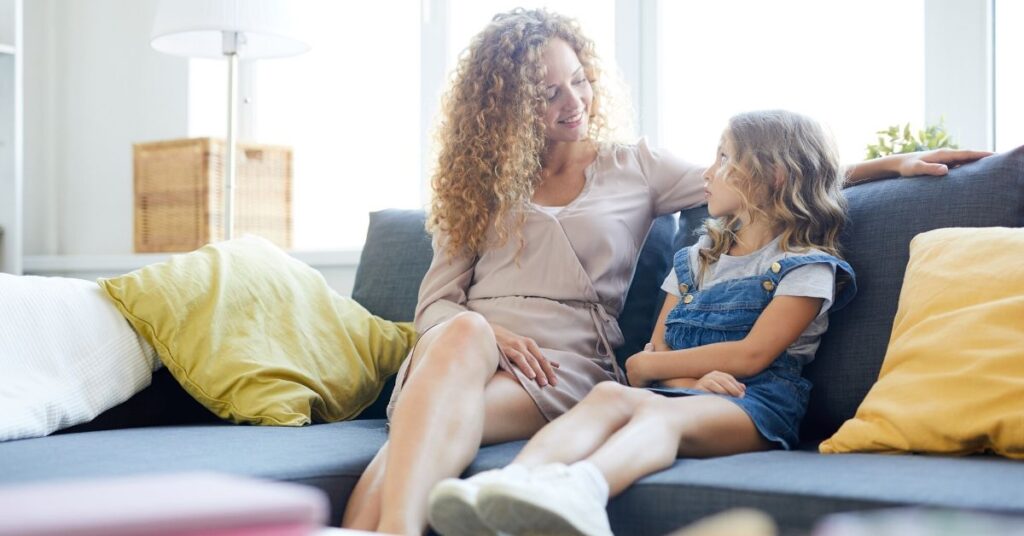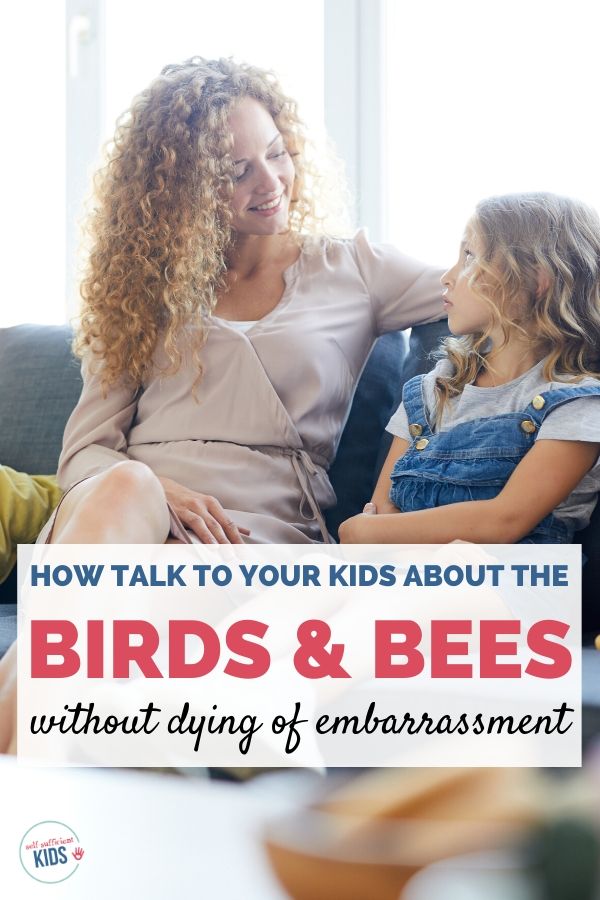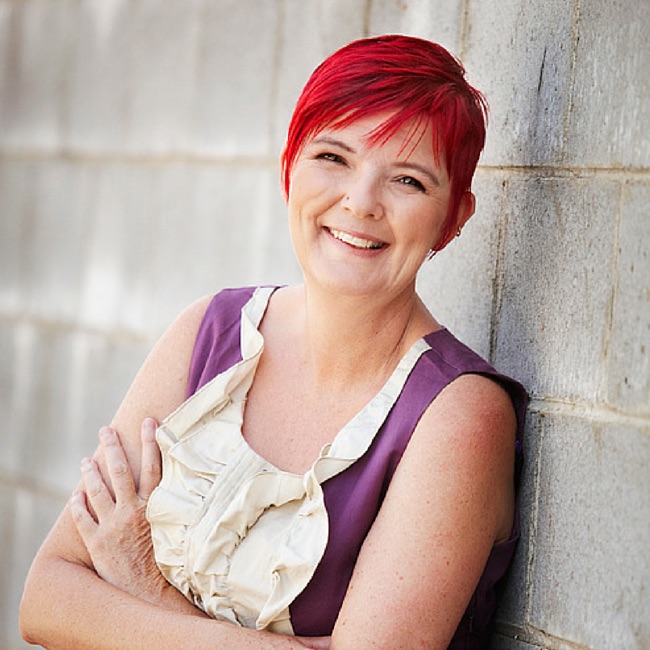How to Start the Birds and Bees Talk (Without Dying of Embarrassment)
Having the birds and bees talk with kids can feel uncomfortable for many parents – but it doesn’t have to be! Here are a few tips on how to inform kids without embarrassment.

(This post contains affiliate links. If you click on a link and make a purchase, I’ll receive a commission at no extra cost to you.)
The birds and bees talk!
That dreaded talk that may (or may not) have happened when you were growing up.
For many of us, it was an awkward conversation where our parents tried to explain how babies are made. And it’s how many of us learned about sex for the first time (if friends or an older brother or sister hadn’t already told us about it).
And now, as a parent, the ‘birds and bees’ is a conversation you’ll probably have too.
But hopefully, you can do a much better job, than what your parents did with you!
So let’s look at how we can turn the birds and bees into natural conversations that empower your child to make smart sexual decisions.
For many parents, sex is a conversation they dread. They worry that instead of helping their child they’re actually harming him or her instead. That they might give them too much information (or not enough). Or even say the wrong thing.
But information about sex isn’t permission for your child to be sexually active. It simply empowers them to make smart decisions.
But whether you talk to them (or not), your child is already learning about sex. And if they don’t learn about it from you, then they’ll learn about it from their friends and through the media – where they’ll often get information that’s usually inaccurate, misleading and confusing. With values that often don’t match your own!
So it’s important for you to start talking to your child – before someone else does it for you!
What to say to kids about the birds and bees
Sex education is a conversation that happens very slowly and gradually over a number of years.
And luckily for you, sexual intercourse is just a small part of the conversation.
Ideally, the conversation should start in the preschool years. Where it is about naming the body parts, gender, diversity, introducing the concept of privacy, boundaries around private and public places and behavior, consent, and touch.
At this age, kids are constantly trying to work out how the world works. And one of the greatest mysteries is about how they came to exist – i.e. how babies are made.
The first question kids will usually ask is “Where did I come from?”.
It’s important to keep the answer basic. “You came from inside my tummy (or uterus) and came out through my vagina (or a special cut in my tummy)”. You can add in more detail as they get older or more curious.
The next question, is usually: “How is a baby made?”. Again, try to keep it simple – “You need a part from a man (cell or sperm) and a part from a woman (cell or egg) to make a baby”.

Then they want to know how the egg and the sperm meet. “A baby is made when sperm leaves the man through his penis and goes into the woman’s vagina. The sperm finds its way to the place where the egg is. The egg and the sperm then join together, and grows into a baby”.
This is when you can start talking about sexual intercourse, as most kids are curious about how the sperm gets inside the vagina. “The woman lets the man place his penis inside her vagina”. As they get older, you can let them know that sex is more than penises going into vaginas. And that adults will also kiss, hug, touch and engage in other sexual behaviors with each other. You can also remind them that ‘having sex’ is an adult activity and not for kids.
If this sounds like too much to say to a young child, remember: children are unaware of concepts of lust and sexual desire and are really just interested in finding biological answers to their questions.
And don’t be surprised if your child thinks that sex is a strange thing to do. All kids think this, and can’t imagine why we would possibly want to do such a strange thing. It isn’t until puberty (when they become sexually mature) that they begin to understand why sex happens, as they begin to experience sexual feelings for the first time themselves.
When your child is eight or nine, it’s time to start talking about puberty. Kids need to know about the changes that happen to everyone, like growth spurts, pimples, body odor & sweating, oily hair & skin, arm & leg hair thickens, armpit & pubic hair, and hands & feet grow bigger and longer.
Girls need to know about breasts, wider hips, bottom & thighs becoming more rounded, vaginal discharge, and periods. Boys need to know that their body will become taller, heavier & more muscular; that their shoulders and chest will broaden; their penis, testicles, and scrotum will grow larger, they’ll ejaculate, notice more spontaneous erections, and wet dreams may start.
As well as their body changing, their feelings and relationships with others will change too. Kids also need to know that they’ll start to be more curious about sex and develop romantic feelings towards their peers.
Things to remember:
There’s no ‘magic formula’ for sex education, but there are some principles that you need to keep in mind:
- Embarrassment is normal – the more you talk, the easier it gets!
- If your child isn’t ready to hear something, they’ll promptly forget what you said.
- It’s about lots of small, frequent chats that need to be repeated.
- Keep it super simple – just like you would explain other things like, why the sky is blue and where rain comes from.
- If you don’t know the answer to their question, tell them you’ll get back to them and make sure you do!
- Be clear on what values and beliefs you want to share with your child – how do you feel about sex before marriage, same-sex relationships, contraception, abortion, etc.
- Don’t forget to use books, as they provide you with age-appropriate information and can help to make conversations feel less awkward.
It does get easier
Talking to kids about sex can feel tricky when you first get started. And most parents feel awkward and uncomfortable in the beginning. But luckily, the more you talk, the easier it gets.
Open and honest conversations about sex are important as they help your child in making the right decisions about love, sex, and relationships. As well as strengthen your relationship without feeling embarrassed, awkward or nervous.

Cath Hakanson has been talking to clients about sex for the past 25 years as a nurse, midwife, sex therapist, researcher, author, and educator. She’s spent the past 15 years trying to unravel why parents (herself included) struggle with sex education. Her solution was to create Sex Ed Rescue, an online resource for parents looking for a better way to talk about sex so they can empower their child to make smart sexual decisions.
Cath has lived all over Australia but currently lives in Perth with her partner, 2 children, and an ever-growing menagerie of pets. Despite having an unusual profession, she bakes, sews, and knits for sanity, collects sexual trivia, and tries really hard not to embarrass her children in public. Well, most of the time anyway!
If you’d like to learn ways to naturally talk about sex, all while respecting your personal values, please visit her online home at Sex Ed Rescue.
See also:
What Kids REALLY Need to be Confident, Independent, and Self-Reliant
How to Raise Responsible Kids – Not Just Obedient Ones
Why Every Kid Should Talk Back to Their Parents
What to do next…
1. Subscribe to Self-Sufficient Kids’ email list.
Like what you read here and want to learn more? Every Thursday I’ll send you one parenting tip about raising self-sufficient kids and creating the peaceful relationship you yearn to have with your child. Click here to sign up.
2. Take one of my quizzes!
Find out if you’re raising a self-sufficient kid (click here) or if you’re doing too much for your kids (click here). At the end of each quiz, you’ll be asked to provide your email address to see the results.
3. Get your kids started on chores.
Learn how to get your child started on chores (& keep them motivated + avoid power struggles) by enrolling in my Get Your Kids Successfully Started on Chores course. Click here to learn more and sign up.


